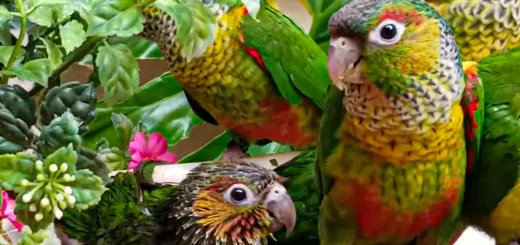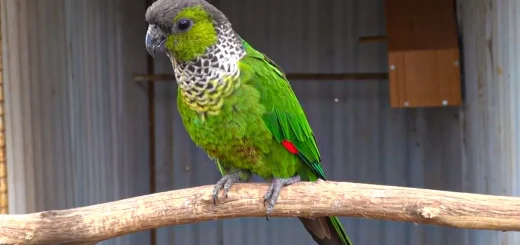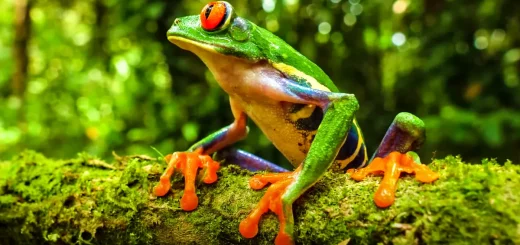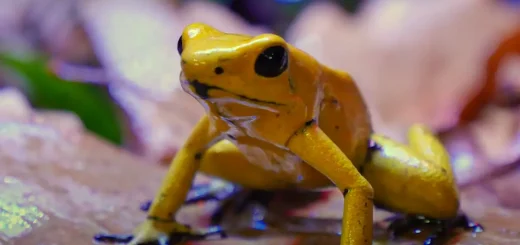Black Capped Conure Care, Personality and Species Profile
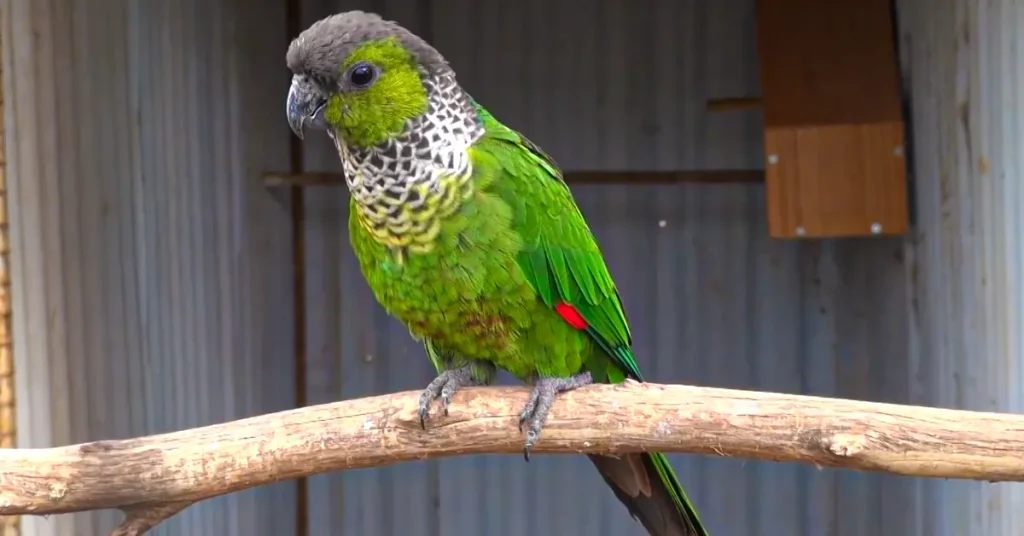
A parrot that is playful as well as smart? Yes, the black-capped conure exists. These rather small multi-colored birds are real characters. They come from South America originally but they are quickly becoming popular pets in American homes. Why? They love to socialize, learn and be around you.
This guide will explore what makes black-capped conures unique. Starting from their appearance to their behavior, we will discuss it all. Want one for yourself? We have got your back with many good words on how to take care of them, train them and sneak into their reproductive habits.
Are you ready to learn about black-capped conures? Let’s begin!
Overview of Black-Capped Conure
Species Classification
It is called the lively Black-Capped Conure, which is an endearing parrot that hails from South America. Here is a brief view of its scientific name and common names:
| Scientific Name | Pyrrhura rupicola |
| Common Name | Black-Capped Conure, Rock Conure, Black-Capped Parakeet |
| Native Region | South America |
Physical Description
Black-capped conures are small birds with big personalities. Some of the features that distinguish them include:
| Feature | Descriptions |
| Size Weight | About ten inches (25 cm) long.About 70-85 grams (about 2.5 – 3 ounces). |
| Coloration | Mostly green. A black cap on the head |
| Distinguishing Marks | Red patches on the bellyBlue feathers |
| Beak | Dark gray to black |
Natural Habitat
Black-capped conures like to indulge in natural surroundings. They feel at home in many tropical places throughout South America.
Original Range -Peru, Bolivia and Brazil
Common Settings -Rainy lowland forests, riverine habitats and subtropics
These birds love living in deep green woods and are often found in riverside areas too. They do well in humid climates and are common in the varied ecosystems of the Amazon basin.
Why Adopt Black-capped conure
Appearance is not everything; black-capped species have other advantages as well. These birds are intelligent, curious and good pets for individuals who have time to invest. Many people take pleasure in observing their activities while listening to their lively sounds.
Next time you visit the rainforests of South America, look out for these talkative colorful birds. If you want one as a pet, be ready for a feathered friend with boundless energy and spunky nature!
The way they behave and act is what makes them so unique.
Behavior and Character of Black-Capped Conures
Sociable Nature
Black-capped conures are very sociable birds that thrive on social interaction. They like to stay close to people and other bird species. In the wild, they exist as a group which makes them crave companionship when in captivity. When left alone for too long, they can become lonely and depressed.
Playfulness
These conures are extremely playful and love toys, particularly if they can be chewed on. One of their days’ highlights is having interactive playtime with humans who love staying with them. Having different kinds of toys around keeps them happy and mentally stimulated.
Loving
Despite being small in size, black-capped conures have huge personalities. They bond strongly with their owners and often want physical closeness. They delight in head scratches as well as snuggling into the neck or shoulder of their favored person. For those who have time to interact regularly, these affectionate creatures make good pets.
Vocalization
Although not as noisy as some larger parrot species; black-capped conures may be quite vocal at times. They use various calls and sounds to interact with members of their flock. Sometimes, they imitate sounds that they hear around them which adds a distinctive charm to their personality profile.
Intelligence
Black-capped conures are intelligent birds. They can quickly learn tricks that constitute the simplest puzzles. Besides, they take pleasure in such activities too. The main secrets to achieving collaborative friendships are care, love, and exercise. On this path to better relationships, one can learn quicker than with conventional correction. Hence, the birds and their creators also benefit.
Curious and Explorative
These conures are by nature curious. They tend to go through their surrounding places and are found to be new objects most of the time. This means that the birds are very innately intrusive so there is a critical need for the creation of safe bird-plants to avoid the adversity from occurring to them. What they were curious about happened to be satisfying the watching experience.
Slightly Mischievous
Conures share their parents’ playful and nosey personalities, therefore, they will probably be a bit mischievous at times. Sometimes they might be silly, causing your fingers to become the victims. And so if one continues to cheer them on everything or hold them hostage when in need of being out, trouble is always going to mount.
Sensitive to Environment
Conures that possess black caps are certainly affected by environmental shifts. They prefer what they are familiar with to a life that is constantly unpredictable and so they like to live an organized and peaceful life. The changes that suddenly occur can put the pets out of their minds. They feel better when nothing seems to be pressing and human hubbub neither happens there nor bothers them.
Black-Capped Conure Care and Maintenance
Dietary Needs
Healthy Diet: Consume fresh fruit, veggies, pellets, and seeds. The use of everything is the balanced routeway for it to get the greatest product.
Food to Refrain: Do not give chocolate, caffeine, avocado, and alcohol to birds as these can be fatal.
Housing Requirements
Size of Cage:
A spacious cage is important of course. At 6 feet in dimension, a cage that’s at least 2 feet wide and 2 feet deep will be a great choice.
Types of Perches:
The wood should be clean and also corrosive resistant; rope, swimming, and other kinds of materials should be kept away. Changing the wood perches around and this leads to the birds getting around in different areas.
Toys:
Offer wood-chewable toys, plus swings, ladders, and stylish climbing mechanisms hanging. When the toys are placed on their tree, these brave birds exercise and have fun amidst the visual beauty of the sky, also enjoying the scene of any past or present one.
Health Care
Signs of Not Feeling Well:
Keep an eye on your pet for respiratory disorders, feather plucking, and nutritional deficiencies. If you notice any of these symptoms, take your bird to a doctor as soon as possible.
Veterinarian Appointments:
It is not okay to ignore a pet’s health just because it is not a human being. Instead, you need to accompany your pet to the doctor every twelve months to evaluate how it is doing overall and discover what potential defects there may be.
Proper Nutrition:
All contribute to the overall health of your bird, lessen the symptoms of diseases and promote quicker healing. No treats like popcorn should be given to parrots which are likely to become obese.
Training and Socialization
Basic Training Tips
Move through the steps of training:
Start the training with the simplest words such as “step up”. Use the same voice and body language every time as they respond well to them. The common words should be situationally supported with good modeling.
Positive Reinforcement:
Give them treats and praise as rewards for good behavior. Do not give in to them, be strong, and do not give them a bad understanding of what they have.
Breeding Black-Capped Conures
Breeding Conditions
One of the essential conditions for the successful breeding of black-capped conures is the provision of a calm and ample environment. The construction of nesting boxes is a must since it will be the most secure location for egg-laying and raising hatchlings. Take into account that boxes should be kept clean and they should be of an adequate size for your conures to fit into them properly.
Mating Behavior
The mating ritual involves many discrete courtship behaviors like mutual preening and feeding food. These actions help make the partner bonds stronger. Now being bullied the parrots will very often be found near one another showing heightened affection, hence mating signals will have been sent out.
Raising Chicks
The process of raising chicks requires a lot of care from the side of the breeding connotes. How can they not be playful as they are just hanging from one end of a leaf by their beaks? Parents start prospering with the chicks regurgitated food to eat from the beginning. After about a fortnight is done, add some soft food to feed the chicks so that they can be weaned. You need to be careful that when the chicks are warm and secure, you also need to check them often to be assured that they are healthy.
Final Thoughts
Black-capped conures endowed with their lively temperaments and interactive character can be delightful pets. For people interested in a conure, be sure you can meet their needs, so you need to have time and commitment. Black-capped conure is a lovely pet to own, and people who own the animal feel very well.
People Also Ask-
FAQ
Do black-capped conures talk?
Although black-capped conures may memorize very well how to speak, they are not as good at talking as some other birds pretending to talk. Due to their character, they are likely to repeat a couple of words or sentences but it is often difficult to understand what they are saying. They are merely popular in their playful and social behavior rather than their talking ability.
What is the lifespan of a black-capped conure?
On average when they are reared in artificial conditions letting them live fully and actively, they can survive for about 20-30 years. That means that their diet should be balanced, they need to undergo veterinary check-ups, and they should get in close touch with their environment.
What to feed a black-capped conure?
The basic diet of a black-capped conure should be high-quality pellets with some fresh fruits and vegetables every once in a while. They love eating food like veggies, fruits, and berries. Also, they are prone to diet-related diseases. So, avocado, chocolate, caffeine, and alcohol are unsafe for them.
Meta:

